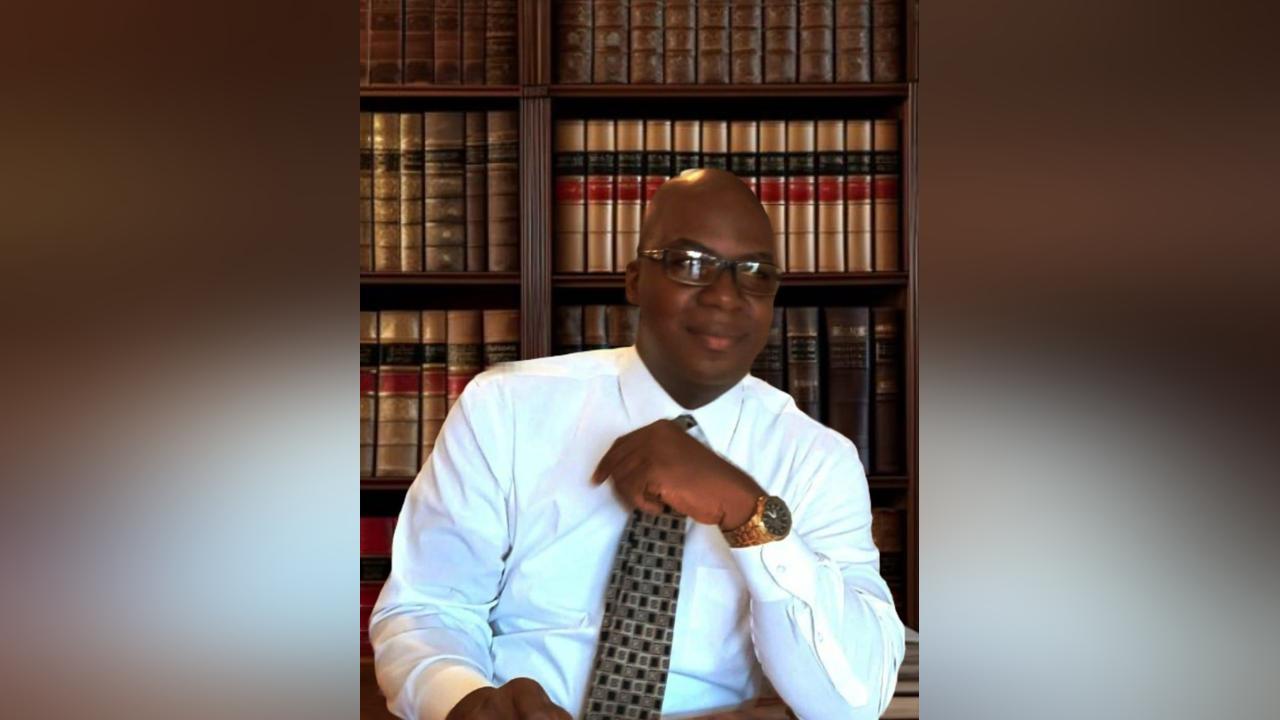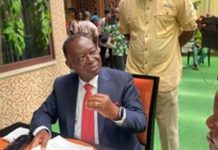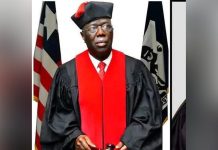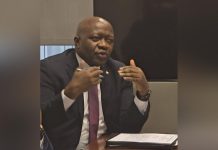Africa-Press – Liberia. Since the dawn of independence in the mid-twentieth century, the political destiny of Africa has been profoundly shaped by the role of its armed forces. Across the continent, the military has stood as both a symbol of national unity and a force of political disruption. The postcolonial experience reveals a deeply ambivalent relationship between civilian authority and the armed forces — one characterized by alternating phases of cooperation, competition, and confrontation.
Military intervention in governance, often justified under the pretext of restoring national order or eradicating corruption, has paradoxically become one of the most destabilizing forces in Africa’s democratic evolution. What began as patriotic missions to “save the nation” frequently devolved into authoritarian rule marked by suspended constitutions, rule by decree, and the concentration of unchecked power in the hands of military juntas.
From where I sit — after years of observing the evolution of governance and security institutions across the continent — Africa’s military dilemma is not simply a question of political ambition. It is a matter of institutional fragility, historical inheritance, and the absence of democratic safeguards capable of balancing authority with accountability. This essay undertakes a cross-analysis of military intervention in Africa’s democratic journey, exploring its origins, motivations, consequences, and the road toward a sustainable civil–military equilibrium.
The Historical Foundations of Military Intervention
When African nations gained independence between the 1950s and 1970s, they inherited not only the administrative apparatus of colonial rule but also its coercive machinery. Colonial armies were never designed to defend democracy or national sovereignty — their mission was to protect imperial interests, enforce extraction, and suppress dissent.
After independence, most African states retained these military structures virtually unchanged. Their ethos remained authoritarian, rooted in hierarchy and command rather than civic accountability. Officers were trained to obey, not deliberate; to dominate, not to serve. Compounding this was the colonial practice of recruiting soldiers from select ethnic or regional groups the so-called “martial races” leaving deep structural imbalances within the armed forces that later fueled internal tensions and political rivalries.
Newly independent political elites, often Western-educated and urban-based, inherited fragile economies and shallow institutions. Political patronage, ethnic favoritism, and corruption eroded legitimacy. Civilian leaders increasingly relied on coercion to maintain control, inadvertently elevating the prestige and influence of the military as an “institution of last resort.” In such an environment, soldiers began to see themselves as the only disciplined and patriotic actors capable of saving the state from collapse a self-image that would justify generations of military intervention.
The Rise of Coups and the Militarization of Politics
The 1960s and 1970s ushered in an era of coup d’états that reshaped Africa’s political landscape. Between 1960 and 1985, the continent witnessed over sixty successful military takeovers — a phenomenon unmatched globally. The barracks, not the ballot box, became the stage for political change.
In Togo (1963), Sergeant Étienne Eyadéma’s overthrow of President Sylvanus Olympio marked the beginning of postcolonial military rule. Nigeria (1966) followed when Major Chukwuma Kaduna Nzeogwu and his colleagues toppled Prime Minister Tafawa Balewa, igniting a cycle of coups that haunted the country for decades. Ghana (1966) soon joined, as General Ankrah deposed Kwame Nkrumah, one of Africa’s most visionary but increasingly autocratic leaders.
These coups were often justified as patriotic acts to restore order, end corruption, and protect the state from decay. Yet, once in power, military regimes frequently replicated the same vices they condemned: repression, corruption, and nepotism. Constitutions were suspended, opposition silenced, and governance conducted through decrees.
In Nigeria, a succession of military rulers — Gowon, Mohammed, Obasanjo, Babangida, Abacha — governed through authoritarian command. In Ghana, Flight Lieutenant Jerry Rawlings claimed revolutionary intent but held power for nearly two decades. Figures such as Idi Amin in Uganda, Mengistu Haile Mariam in Ethiopia, and Jean-Bédel Bokassa in the Central African Republic turned military regimes into personal dictatorships.
By the 1980s, it had become clear that once the military entered politics, it seldom left willingly.
Theoretical Perspectives on Military Intervention
Political theorists have long examined the conditions under which soldiers enter the political arena. Samuel P. Huntington’s theory of praetorianism argues that when political institutions are weak but the military is strong and cohesive, the armed forces inevitably dominate the state. This framework aptly describes postcolonial Africa, where weak civilian institutions coexisted with militaries that held superior organization, discipline, and arms.
Similarly, Guillermo O’Donnell’s concept of bureaucratic authoritarianism posits that militaries often seize power during times of economic and social crisis, rationalizing their rule as a “technocratic necessity” to restore order and stability. Such regimes prize efficiency over participation a pattern visible in Africa’s history of “temporary corrective governments.”
Yet, these theories overlook a defining African dimension: the colonial legacy. Unlike Latin America or Asia, African militaries did not evolve organically from national defense traditions but were tools of colonial control. This alien origin left them detached from the societies they were meant to protect, fostering a culture more attuned to command than service and leaving the door open for politicization and manipulation.
Democratization and Civil–Military Realignment
The late 1980s and 1990s marked a transformative period. The end of the Cold War dismantled superpower patronage networks that had sustained military regimes. Across Africa, mass pro-democracy movements arose driven by civil society groups, students, unions, and churches demanding political liberalization and accountability.
This “Third Wave of Democratization” ushered in multiparty elections, new constitutions, and the reassertion of civilian control over the armed forces. Benin, Zambia, Malawi, Ghana, and South Africa became case studies in democratic renewal.
Regional and continental organizations reinforced these reforms. The African Union (AU) and ECOWAS established binding legal frameworks — notably the Lomé Declaration (2000) and the African Charter on Democracy, Elections and Governance (2007) condemning coups and suspending states that violated constitutional order.
Yet, despite these advances, civil military relations remained imperfect. Many former military leaders rebranded as civilian politicians Obasanjo in Nigeria, Rawlings in Ghana, Kagame in Rwanda blurring the line between uniform and suit. The militarized mindset of control and secrecy persisted in governance, even under civilian rule.
The Resurgence of Coups in the 21st Century
The optimism of the early 2000s has faded in the face of a new wave of coups, especially in the Sahel and Central Africa.
Between 2020 and 2023, soldiers seized power in Mali, Guinea, Burkina Faso, Niger, and Gabon, each claiming to rescue their nations from civilian incompetence, corruption, or insecurity. The rhetoric echoed the 1960s “corrective action,” “national salvation,” “restoring sovereignty” but the outcomes followed the same old script: suspension of constitutions, delayed elections, restricted freedoms, and political stagnation.
Public reaction was conflicted. In societies disillusioned by corrupt and ineffective civilian leaders, many citizens initially welcomed the soldiers. Yet history warns that popular approval of coups is short-lived. The enthusiasm of liberation soon gives way to disillusionment when governance falters and repression returns.
This resurgence underscores a painful truth: democracy in form is not democracy in function. When governments fail to deliver justice, security, and economic dignity, the people’s loyalty shifts not to democracy itself, but to whoever promises order.
The Civil–Military Paradox and the Path Forward
Africa’s democratic challenge is not merely to prevent coups but to redefine the military’s constitutional purpose. The armed forces are essential to national defense, counterterrorism, and peacekeeping — but when they cross into politics, they undermine the very legitimacy they claim to defend.
Reform must go beyond legislation; it requires cultural transformation within both the barracks and the parliament.
Civilian oversight must be enforced through empowered defense committees, transparent procurement, and rigorous auditing. Military education must prioritize constitutional literacy, human rights, and civic ethics as rigorously as it does tactics and command.
At the same time, the deeper roots of instability corruption, inequality, unemployment, and weak governance must be confronted head-on. When citizens feel excluded and betrayed by civilian elites who plunder state resources and funnel them to foreign accounts in Asia or Europe, they lose faith in democracy itself. Corrupt leadership, hiding behind constitutional legality, becomes the silent accomplice of military adventurism.
Conclusion: Between the Barracks and the Ballot Box
From where I sit, the future of Africa’s democracy depends on preserving a delicate balance between the barracks and the ballot box. When soldiers perceive themselves as custodians of the nation rather than servants of the constitution, democracy rests on fragile ground. But when the military returns fully to its professional calling to defend rather than dominate it becomes a true partner in national progress.
Military intervention may bring temporary order, but history proves it leads to long-term decay institutional paralysis, economic stagnation, and civic despair. The true salvation of African states lies not in decrees or coups, but in the difficult, disciplined work of democratic governance — where justice is upheld, corruption punished, and citizens empowered.
For More News And Analysis About Liberia Follow Africa-Press






